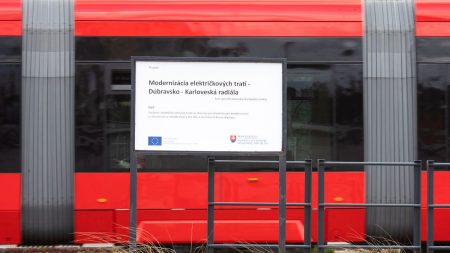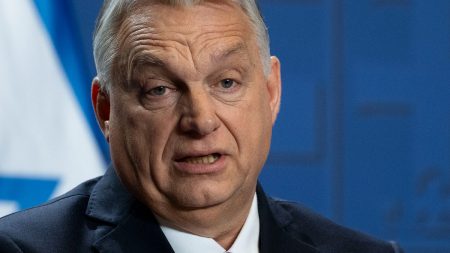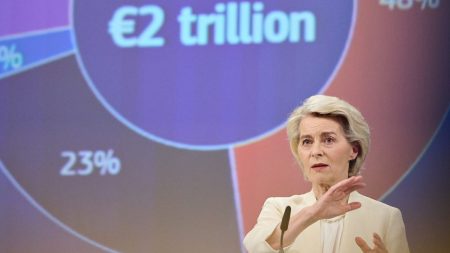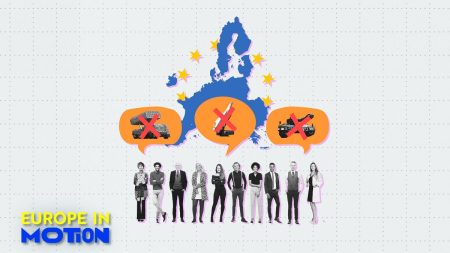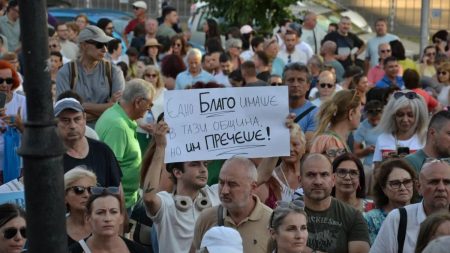In the recent parliamentary elections in Iceland, the Social Democratic Alliance emerged as the dominant force, marking a significant shift in the political landscape of the nation. With the vote count finalized, the party secured 15 seats within the 63-seat Althingi, Iceland’s parliament, which is known for its long-standing democratic traditions, tracing its roots back to 930 AD. Capturing nearly 21% of the popular vote, the Social Democrats more than doubled their previous seat count. The results highlighted a decisive trend where voters opted for change, as indicated by the decline in support for the ruling conservative Independence Party, which only managed to secure 14 seats with a 19.4% vote share. This political upheaval follows a global pattern of voters expressing dissatisfaction with incumbent governments amid rising living costs and other pressing issues.
The backdrop to this election was marked by significant tensions over immigration, energy policy, and economic management, which ultimately compelled Prime Minister Bjarni Benediktsson of the Independence Party to dissolve the coalition government and call for early elections. The challenges faced by the outgoing administration, which included the Independence Party, the Progressive Party, and the Left Greens, culminated in a lack of consensus, contributing to a declining voter base for these parties. The Left Greens, in particular, faced a catastrophic defeat, losing all of their eight parliamentary seats. This unease among voters reflects a broader sentiment prevalent in many Western democracies, where economic struggles and immigration debates have incited a push for political change.
It is important to recognize that the election was not without its logistical challenges, particularly snowfall that obstructed road access and delayed the transportation of ballot boxes to counting centers, further complicating the process. However, despite this disruption, voter engagement remained strong, with approximately 80% of registered voters participating, indicating a robust democratic spirit among the electorate. This level of turnout is noteworthy and suggests that voters are actively engaged in shaping their political landscape, even amidst economic uncertainties and political turbulence.
As the Social Democratic Alliance celebrates its success, its leader, Kristrún Mjöll Frostadóttir, aged 36, now faces the task of navigating potential coalition talks to establish a functional government. Securing partners to command a parliamentary majority will be critical in ensuring stability and implementing the party’s agenda. Frostadóttir’s leadership will likely focus on addressing the key issues that contributed to the electorate’s desire for change, particularly those relating to the economy and social concerns surrounding immigration and energy policies. In a multi-party system such as Iceland’s, coalition-building is often crucial to governance, and the ability of the Social Democrats to form alliances will determine the effectiveness of their mandate.
The rise of the Social Democrats amidst a backdrop of economic challenges and political disillusionment reveals a significant shift in what voters expect from their leadership. Since the financial disaster in 2008, Iceland has experienced a precarious political landscape characterized by instability and frequent changes in government coalitions. The latest election results underscore the electorate’s impatience with the current state of affairs and their readiness to endorse new political directions. This sentiment, common in various Western nations, reflects a broader discontent with the established political order and the yearning for alternatives that respond more adeptly to the peoples’ needs and concerns.
In conclusion, the recent parliamentary elections in Iceland stand as a testament to the shifting dynamics of voter sentiment and political allegiance, showcasing a decisive move away from the incumbent parties that have struggled to address pressing societal issues. With the Social Democratic Alliance poised for a potentially transformative role in the Althingi, the future of Iceland’s political environment may hinge on effective coalition-building and the new administration’s ability to directly engage with and address the challenges facing its citizens. As the nation looks to navigate through economic pressures and social change, the outcome of this election serves as both a reflection and a catalyst of the evolving political narrative in Iceland and beyond.






